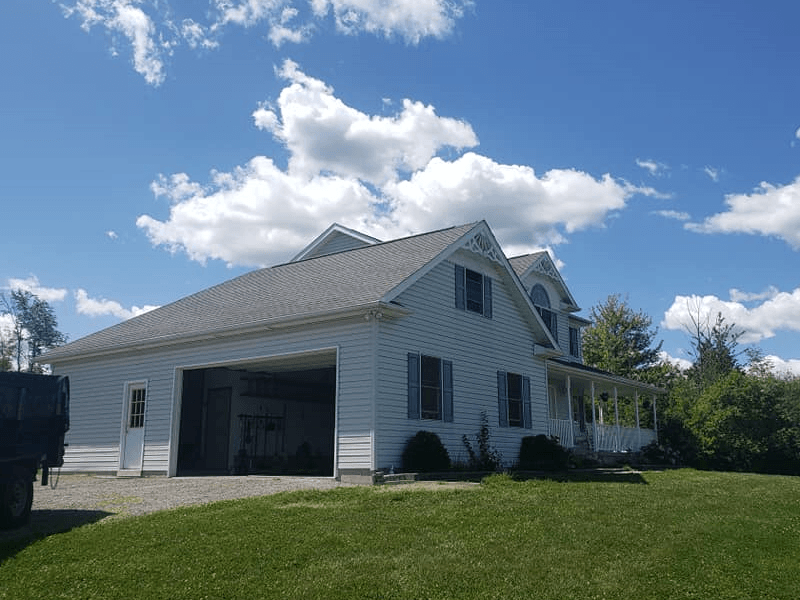Introduction
When embarking on a roofing project, whether it's a roof repair, replacement, or installation, selecting the right materials is crucial. The quality of roofing supplies not only affects the longevity and durability of your roof but also impacts the overall aesthetic appeal and value of your property. In this article, we will explore various types of roofing materials, their benefits, and considerations for choosing quality roofing supplies for your next project.
Quality Roofing Supplies You Should Consider for Your Next Project
Understanding Roofing Materials
The first step in any roofing project is understanding the various types of materials available. Each type has its unique advantages and disadvantages.
Types of Roofing Materials
Asphalt Shingles- Widely used due to their affordability and ease of installation. Available in different styles and colors. Generally lasts 15-30 years with proper maintenance.
- Durable and can last up to 50 years or more. Resistant to extreme weather conditions. Energy-efficient as they reflect solar heat.
- Known for their longevity and beautiful appearance. Can be made from clay or concrete. Heavy; may require additional structural support.
- Offers a unique aesthetic that many homeowners desire. Extremely durable but also one of the most expensive options.
- Popular in commercial settings due to its energy efficiency. Single-ply membrane that’s easy to install.
- Rubber material that is commonly used for flat roofs. Known for its durability and flexibility.
- Often used for low-slope roofs. Easy to install but less aesthetically pleasing than other options.
- Used to extend the life of an existing roof. Helps improve energy efficiency by reflecting sunlight.
Selecting Quality Roofing Supplies
When it comes time to choose your roofing supplies, consider the following factors:
Durability and Longevity
How long do you want your roof to last? Different materials offer varying lifespans:
- Asphalt shingles: 15-30 years Metal roofs: 40-70 years Slate shingles: Up to 100 years
Climate Considerations
Your local climate plays a significant role in material selection:
- Hot climates may benefit from reflective metal roofs or light-colored tiles. Areas prone to heavy rain might require waterproof materials like EPDM rubber roofing.
Aesthetic Appeal
What look are you going for? Choose materials that complement your home’s architecture:
- Traditional homes may look best with slate or tile roofs. Modern designs often pair well with metal roofs or flat designs.
Cost Considerations in Quality Roofing Supplies
Cost is always a factor when it comes to home improvement projects, including roofing:

| Material Type | Average Cost per Square (100 sq ft) | |----------------------|-------------------------------------| | Asphalt Shingles | $90-$100 | | Metal Roofs | $250-$300 | | Tile Roofs | $600-$800 | | Slate Shingles | $1000+ | | TPO Roofing | $200-$300 |
Evaluating Warranty Options
A good warranty indicates quality manufacturing:
- Check if the supplier offers warranties on both materials and workmanship. Longer warranties often correlate with higher-quality products.
Choosing Local Suppliers vs Online Purchases
Should you buy locally or online? Each option has pros and cons:
Local Suppliers
- Pros: Immediate service, local expertise, ability to inspect materials before purchasing. Cons: Limited options compared to online retailers.
Online Suppliers
- Pros: Wider selection, often better prices due to lower overhead costs. Cons: Potential shipping fees; difficulty inspecting products beforehand.
Working With Experienced Roofing Contractors
Choosing quality roofing supplies goes hand-in-hand roofers with hiring experienced contractors. Here’s what you should look for:
Certifications
- Ensure they are certified by manufacturers; this often means they have undergone necessary training.
References
- Ask for previous work examples; satisfied customers are usually a good sign!
Insurance
- Verify that they carry liability insurance—this protects you from potential damages during installation.
Regular Roof Maintenance Tips
Once you've installed quality materials, maintaining them is key:
Conduct Regular Inspections
- Look out for missing or damaged shingles, leaks, or rust on metal roofs.
Clean Gutters

- Ensure rain gutters are clear from debris which could lead to water pooling on the roof surface.
Address Problems Early
- If you spot issues early on—like a leaky roof—address them quickly before they escalate into larger problems requiring costly repairs or replacements.
Common Misconceptions About Roofing Materials
Many myths surround roofing materials—let's debunk some common ones:
All asphalt shingles are created equal
Metal roofs attract lightning
Not true! They do not attract lightning any more than traditional roofs do.
Flat roofs are completely flat
Most have slight slopes to allow water drainage—true flat designs exist but aren’t commonly used due to drainage issues.
FAQs About Quality Roofing Supplies You Should Consider for Your Next Project
Q1: What are the best roofing supplies for residential buildings?
A1: The best supplies depend on your specific needs but generally include asphalt shingles for affordability and metal roofs for durability and energy efficiency.
Q2: How long does it take to replace a roof?
A2: Typically between one day and two weeks depending on size, weather conditions, and crew size.
Q3: Can I install my own roof?
A3: While DIY projects can save money, roofing requires skill; improper installation can lead to severe issues later.
Q4: What signs indicate I need a new roof?
A4: Look out for sagging areas, water stains inside your home, missing shingles, or widespread damage.
Q5: Is it worth investing in high-quality roofing?
A5: Absolutely! Higher-quality materials often last longer and provide better protection against elements.
Q6: How can I find reliable local roofers near me?
A6: Use online reviews and ask friends or family for recommendations; check credentials before hiring any contractor.
Conclusion
Choosing quality roofing supplies is essential not just for enhancing your property’s appearance but also ensuring its safety against the elements. By understanding different types of materials available and considering factors such as cost, climate suitability, aesthetics, maintenance requirements—and working with reputable contractors—you’ll be set up for success in any upcoming roofing project you undertake!
By focusing on these aspects while sourcing quality roofing supplies you should consider for your next project, you'll ensure that you're making informed decisions that will pay off in both comfort and value over time!